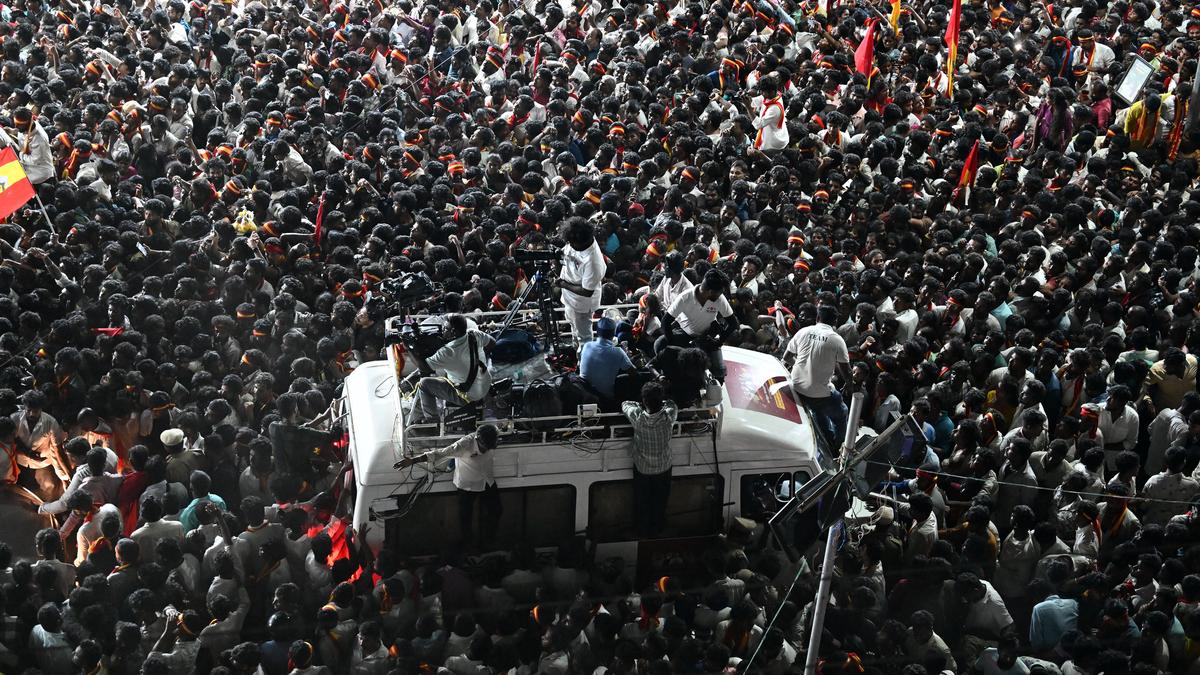
News
October 16, 2025
Death by devotion: hero-worship and its discontents
Why do human societies, even in the modern era of reason and information, continue to fall prey to hero-worship? Psychologists have argued that the phenomenon stems from our evolutionary wiring
**Death by devotion: hero-worship and its discontents**
Why, in an age defined by scientific reasoning and unprecedented access to information, do we still find ourselves drawn to hero-worship? This enduring human tendency, the act of idealizing and often blindly following individuals, continues to shape societies, politics, and even personal relationships. Psychologists suggest that the roots of this phenomenon lie deep within our evolutionary wiring.
From ancient civilizations revering their rulers as gods to modern-day cults of personality surrounding celebrities and political figures, the impulse to elevate individuals above the ordinary seems almost innate. This inclination, psychologists argue, may have served a crucial purpose in our evolutionary past. Early humans, facing constant threats and uncertainties, likely benefited from following strong, charismatic leaders who could offer guidance and protection. A tribe united under a single, decisive figure was arguably more likely to survive than a disorganised group.
However, this deeply ingrained tendency can have detrimental consequences. The uncritical acceptance of a leader's pronouncements can lead to groupthink, suppressing dissenting opinions and hindering rational decision-making. History is replete with examples of societies led astray by charismatic figures who exploited their followers' devotion for personal gain or to pursue destructive ideologies.
The dangers of hero-worship extend beyond the political sphere. The intense admiration for celebrities, for example, can lead to unhealthy obsessions and unrealistic expectations. The pressure to emulate perceived idols can fuel anxiety, body image issues, and a general sense of inadequacy.
So, how do we navigate this inherent human tendency while mitigating its potential harms? Experts suggest cultivating critical thinking skills, encouraging independent thought, and fostering a healthy skepticism towards authority. It's vital to appreciate the accomplishments of individuals without placing them on an unattainable pedestal. Recognizing the flaws and limitations of even the most admired figures allows for a more balanced and nuanced perspective. By understanding the evolutionary roots of hero-worship and actively challenging its potential pitfalls, we can strive for a more informed and rational society, one that celebrates achievement without sacrificing critical judgment.
Why, in an age defined by scientific reasoning and unprecedented access to information, do we still find ourselves drawn to hero-worship? This enduring human tendency, the act of idealizing and often blindly following individuals, continues to shape societies, politics, and even personal relationships. Psychologists suggest that the roots of this phenomenon lie deep within our evolutionary wiring.
From ancient civilizations revering their rulers as gods to modern-day cults of personality surrounding celebrities and political figures, the impulse to elevate individuals above the ordinary seems almost innate. This inclination, psychologists argue, may have served a crucial purpose in our evolutionary past. Early humans, facing constant threats and uncertainties, likely benefited from following strong, charismatic leaders who could offer guidance and protection. A tribe united under a single, decisive figure was arguably more likely to survive than a disorganised group.
However, this deeply ingrained tendency can have detrimental consequences. The uncritical acceptance of a leader's pronouncements can lead to groupthink, suppressing dissenting opinions and hindering rational decision-making. History is replete with examples of societies led astray by charismatic figures who exploited their followers' devotion for personal gain or to pursue destructive ideologies.
The dangers of hero-worship extend beyond the political sphere. The intense admiration for celebrities, for example, can lead to unhealthy obsessions and unrealistic expectations. The pressure to emulate perceived idols can fuel anxiety, body image issues, and a general sense of inadequacy.
So, how do we navigate this inherent human tendency while mitigating its potential harms? Experts suggest cultivating critical thinking skills, encouraging independent thought, and fostering a healthy skepticism towards authority. It's vital to appreciate the accomplishments of individuals without placing them on an unattainable pedestal. Recognizing the flaws and limitations of even the most admired figures allows for a more balanced and nuanced perspective. By understanding the evolutionary roots of hero-worship and actively challenging its potential pitfalls, we can strive for a more informed and rational society, one that celebrates achievement without sacrificing critical judgment.
Category:
Politics